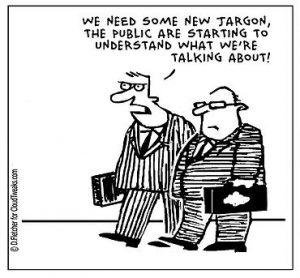 Cloud computing has created an array of exciting new possibilities. From the way we enjoy music and movies, to the business tools we use to communicate and collaborate.
Cloud computing has created an array of exciting new possibilities. From the way we enjoy music and movies, to the business tools we use to communicate and collaborate.
And yet many professional services companies in London are reluctant to make the move because there’s a knowledge gap. They simply don’t fully understand what cloud services are.
So a little bit of jargon busting can help de-mystify the cloud. And it’s probably best to start by explaining what all businesses were using BC. Before the Cloud.
So what happened in the BC era?
Nils Solvang from CloudCIO in North London explains: “Previously accountancy practices were using IT systems in their offices supported by on-site servers connected to desktop PCs. New software was loaded and updated on-site.
“Nowadays, firms who use cloud services still have PCs on their desks. But the servers have gone and the software comes from a remote location via a web browser. All their files and other data are stored in highly-secure data centres away from the office.
“This means data and applications can be accessed by anyone in your accountancy practice who is authorised to do so. It doesn’t matter if they’re at head office in Finchley or a branch office in St Albans or Letchworth. Indeed, partners in the practice could be using a laptop on a train heading for Bedford or an iPad at their home in High Wycombe. Effectively the cloud follows them wherever they choose to work.”
You’re already using cloud services
To any accountant who doesn’t understand how this can work and be completely safe, it’s worthwhile reminding them that they’re probably already sending and receiving personal emails at home. But they don’t require an email server based in their garage or the spare bedroom. This is a cloud service.
They may also be using Dropbox or Google Drive to share pictures, videos and other large files with friends and family via the internet. Again this is a form of cloud computing.
And yet there are still businesses in North London, Hertfordshire, Essex and Buckinghamshire who feel safer having their technology and software locked inside their office.
“Any local office is much less secure than the cloud,” explains Nils. “A thief can easily steal your single on-site server and leave you powerless without any IT services. And an employee may unwittingly import viruses or malware on their USB sticks while sharing their latest holiday photos.”
Limitless server capacity for North London accountants
There’s no such worry using remote cloud data centres which offer you limitless server capacity and the highest standards of security. You can swiftly expand your server requirements without time-consuming server upgrades. That means you always have access to the files and data you need.
For any doubters who are still unconvinced, you could use Dropbox for Business to further illustrate some of the benefits of cloud computing.
Dropbox for Business compared to the free version, offers enhanced security, centralised admin, enhanced collaboration, user controls and permissions, etc. And it integrates with many tools accountants use every day such as Microsoft Office, Adobe Reader and many of others. You can access Dropbox Business using an iPhone or Android smartphone – or a laptop.
Other pluses are that anything you’ve deleted months ago can be quickly retrieved from the Dropbox archives, there’s no limit to the amount of data you can store there and it’s technology agnostic..
So why not consider a full cloud services solution for your accountancy practice? It will maximise the effectiveness of your budget for IT and minimise the impact any IT failures.
For informal discussion, contact CloudCIO.
